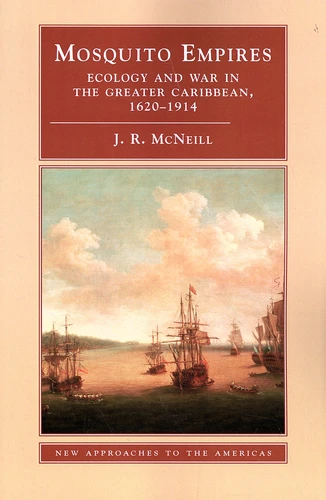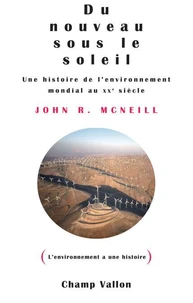Mosquito Empires. Ecology and War in the Greater Caribbean, 1620 - 1914
Par :Formats :
- Paiement en ligne :
- Livraison à domicile ou en point Mondial Relay estimée à partir du 10 décembreCet article sera commandé chez un fournisseur et vous sera envoyé 10 jours après la date de votre commande.
- Retrait Click and Collect en magasin gratuit
- Livraison à domicile ou en point Mondial Relay estimée à partir du 10 décembre
- Réservation en ligne avec paiement en magasin :
- Indisponible pour réserver et payer en magasin
- Nombre de pages371
- PrésentationBroché
- FormatGrand Format
- Poids0.63 kg
- Dimensions15,0 cm × 23,0 cm × 2,5 cm
- ISBN978-0-521-45910-5
- EAN9780521459105
- Date de parution18/02/2010
- CollectionNew Approaches to the Americas
- ÉditeurCambridge University Press
Résumé
This book explores the links among ecology, disease, and international politics in the context of theGreater Caribbean- the landscapes lying between Surinam and the Chesapeake - in the seventeenth through early twentieth centuries. Ecological changes made these landscapes especially suitable for the mosquito vectors of yellow fever and malaria, helping these diseases to wreak systematic havoc among invading armies and would-be settlers.
Because yellow fever confers immunity on survivors of the disease, and because malaria confers resistance, these diseases played partisan roles in the struggles for empire and revolution, consistently attacking some populations more severely than others. In particular, yellow fever and malaria attacked newcomers to the region, which helped keep the Spanish Empire Spanish in the face of predatory rivals in the seventeenth and early eighteenth centuries.
In the late eighteenth century and through the nineteenth century, these diseases helped revolutions succeed by decimating forces sent out from Europe to stop them.
Because yellow fever confers immunity on survivors of the disease, and because malaria confers resistance, these diseases played partisan roles in the struggles for empire and revolution, consistently attacking some populations more severely than others. In particular, yellow fever and malaria attacked newcomers to the region, which helped keep the Spanish Empire Spanish in the face of predatory rivals in the seventeenth and early eighteenth centuries.
In the late eighteenth century and through the nineteenth century, these diseases helped revolutions succeed by decimating forces sent out from Europe to stop them.
This book explores the links among ecology, disease, and international politics in the context of theGreater Caribbean- the landscapes lying between Surinam and the Chesapeake - in the seventeenth through early twentieth centuries. Ecological changes made these landscapes especially suitable for the mosquito vectors of yellow fever and malaria, helping these diseases to wreak systematic havoc among invading armies and would-be settlers.
Because yellow fever confers immunity on survivors of the disease, and because malaria confers resistance, these diseases played partisan roles in the struggles for empire and revolution, consistently attacking some populations more severely than others. In particular, yellow fever and malaria attacked newcomers to the region, which helped keep the Spanish Empire Spanish in the face of predatory rivals in the seventeenth and early eighteenth centuries.
In the late eighteenth century and through the nineteenth century, these diseases helped revolutions succeed by decimating forces sent out from Europe to stop them.
Because yellow fever confers immunity on survivors of the disease, and because malaria confers resistance, these diseases played partisan roles in the struggles for empire and revolution, consistently attacking some populations more severely than others. In particular, yellow fever and malaria attacked newcomers to the region, which helped keep the Spanish Empire Spanish in the face of predatory rivals in the seventeenth and early eighteenth centuries.
In the late eighteenth century and through the nineteenth century, these diseases helped revolutions succeed by decimating forces sent out from Europe to stop them.



